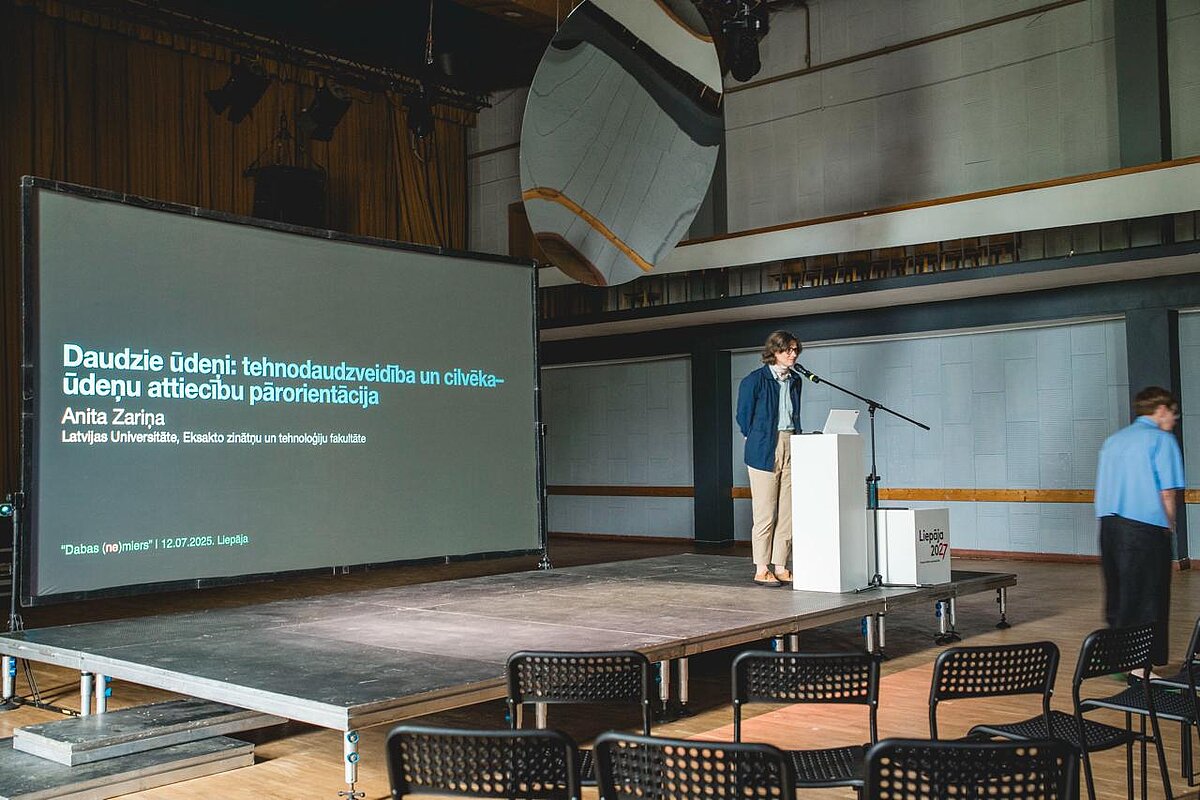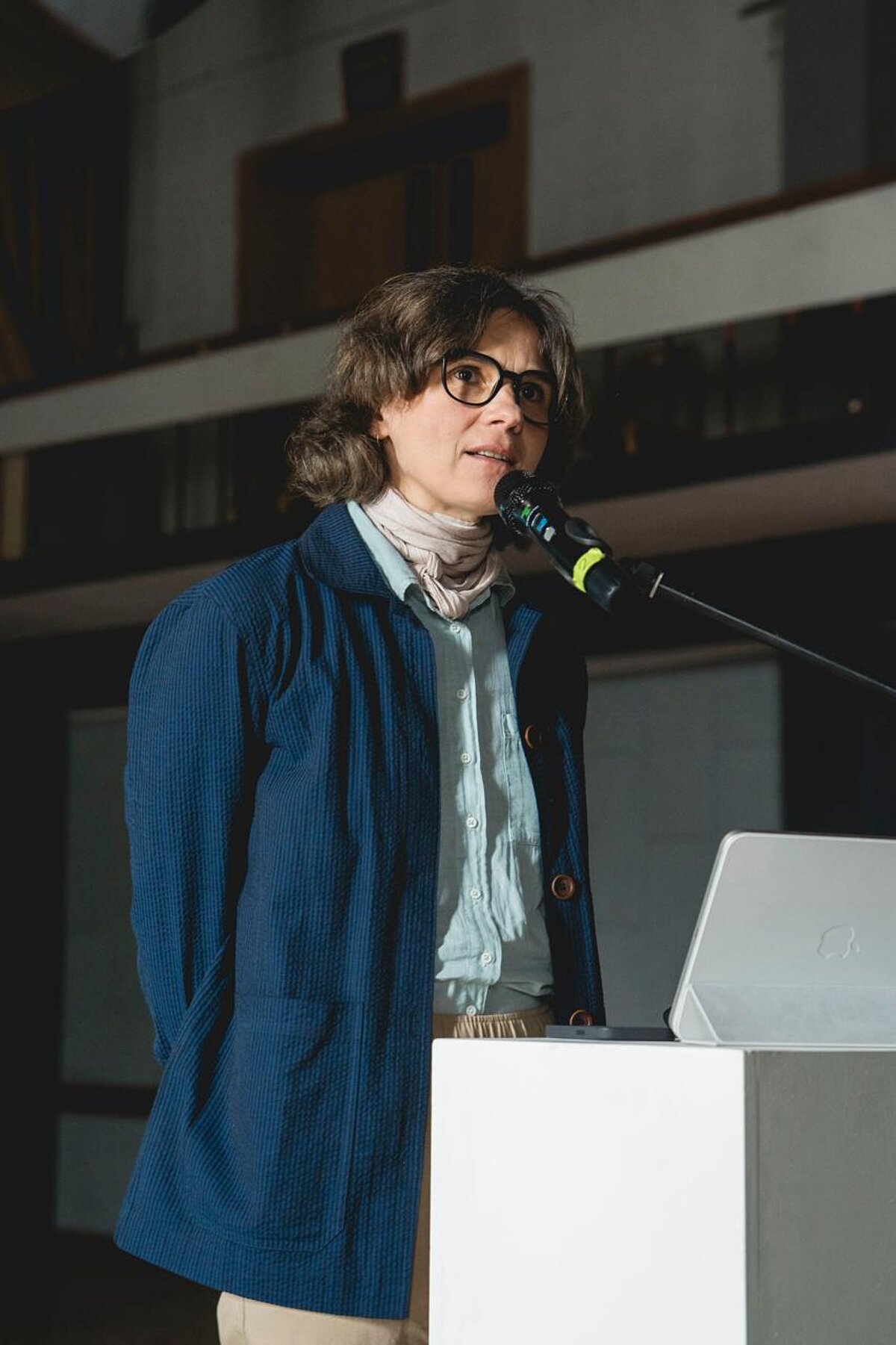
The lecture offered an insight into how we can reorient human relations with water based on the concept of technodiversity. Inspired by the approach developed by Yuk Hui, it critically examines the dominant, uniform Western techno-rationality that determines water management principles around the world – through engineering systems, global indicators, and digitization. In contrast, technodiversity offers a way of thinking with and through different worldviews – cosmotechnics, where water is not just a resource, but a carrier of life, relationships and culture. This reorientation means abandoning the "one water" approach and invites us to think about many waters – about diverse forms of relationships rooted in respect, locality, and co-creation.
The lecture also discussed the research of the Water Culture project, which analyzes hydrosocial relationships, diversity of knowledge, and the place of water in the collective imagination.
Latvian public media also published a review of the Liepaja2027 Cross-Disciplinary Ecological Forum “Nature Trouble”.
Images: Liepāja 2027 publicity photos.

 CONFERENCE
CONFERENCE